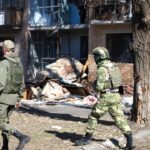Federal labor law restricts employers from terminating employees for participating in activities related to collective bargaining or mutual aid and protection. However, these protections do not extend to employees’ broader political activities. This raises the question of what types of concerted activities fall under the umbrella of “mutual aid or protection” for employees.
In the case of NLRB v. SFR, Inc., the National Labor Relations Board affirmed a decision that employees participating in Black Lives Matter protests did not meet the criteria of being focused on employee rights:
The employees’ involvement in Black Lives Matter protests was deemed not to be for mutual aid or protection based on the facts and existing law; therefore, the allegations were dismissed.
{Although Member Wilcox acknowledges that the evidence did not establish the participation in BLM protests as “other mutual aid or protection” under Sec. 7 as defined in Eastex, Inc. v. NLRB (1978), she notes that the standard articulated by the judge was too narrow. Instead, as noted in Home Depot USA, Inc. (NLRB 2024), “an employee’s concerted actions are protected by Sec. 7 of the Act as long as an objective is protected. The fact that the employee’s actions may have other objectives, or even that those objectives may predominate, is immaterial.”}
Furthermore, the decision affirmed in the case of Nichols and King attending a BLM protest together concluded that their activities were not protected under Section 7 of the Act. The Supreme Court’s ruling in Eastex, Inc. v. NLRB highlighted that Section 7 protects employees when engaging in concerted activities in support of employees of other employers. However, Justice Powell emphasized that there is a limit to which activities can be considered under the “mutual aid or protection” clause.
The BLM protests, while originally focused on police misconduct against African Americans, may have evolved into a movement against racial injustice in general. Nevertheless, the primary focus was not on workplace discrimination. The lack of connection between the protests and specific workplace issues indicates that the activities were too distant from the interests of the employees to be protected under the Act.
In conclusion, the employees’ attendance at BLM rallies, as shown in the record, did not fall under the “mutual aid or protection” clause. Additionally, the employees were not constructively discharged, as there was no clear indication that supporting Black Lives Matter would result in termination.






